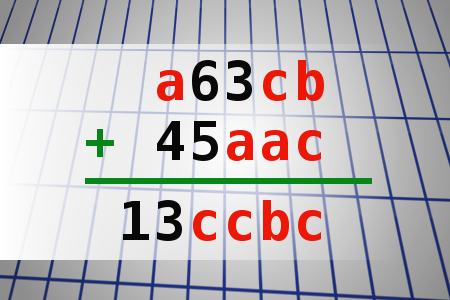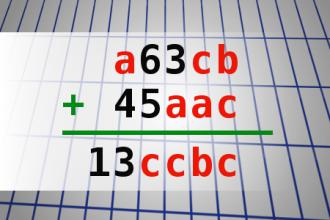Find number abc
If a63cb + 45aac = 13ccbc find number abc. Multiple solutions may exist.
Grandmother....Is that you?
A woman goes to the local psychic in hopes of contacting her dearly departed grandmother. The psychic's eyelids begin fluttering, her voice begins warbling, her hands float up above the table, and she begins moaning. Eventually, a coherent voice emanates, saying, "Granddaughter? Are you there?"
The customer, wide-eyed and on the edge of her seat, responds, "Grandmother? Is that you?"
"Yes granddaughter, it's me."
"It's really, really you, grandmother?", the woman repeats.
"Yes, it's really me, granddaughter."
The woman looks puzzled, "You're sure it's you, grandmother?"
"Yes, granddaughter, I'm sure it's me."
The woman pauses a moment, "Grandmother, I have just one question for you."
"Anything, my child."
"Grandmother, when did you learn to speak English?"

